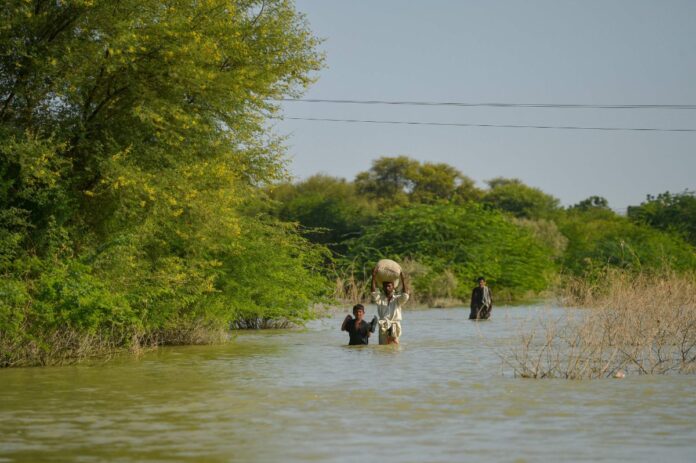ISLAMABAD: Pakistan is planning to increase the number of its flood telemetry stations on rivers and waterways nearly 10 times for precise forecasts and early warning to protect regions vulnerable to flooding, a senior official told Arab News.
The plan comes after monsoon floods battered the country for months, killing at least 1,700 people and wiping out its infrastructure.
The destruction induced by flooding has directly affected over 33 million people, about 15 percent of the country’s population.
As flooding, worsened by climate change, is likely to intensify in the future, a new response plan by the Federal Flood Commission aims to allocate about $69 million to purchase early warning systems from the international market.
“We have made a first-ever national master plan on flood telemetry, and it is composed of 679 stations,” Ahmed Kamal, the commission’s chairman, told Arab News.
“These stations are going to be placed on even the smallest of rivers and streams.”
Currently, the country has only about 70 such automated stations.
Kamal said the country’s Balochistan province — worst hit by the recent floods — as well as parts of Sindh, Khyber Pakhtunkhwa and Gilgit-Baltistan, which also suffered huge damages and casualties, were “devoid of the flood telemetry system.”
The flood protection strategy has been in the works for the past few years, but Pakistan had not been able to secure funds for its implementation.
“By the time we were discussing this situation, the 2022 floods arrived,” Kamal said.
“Afterwards, I think there was a much greater realization that perhaps we have not done justice with this very important sector.”
The UN last week revised its flash appeal fivefold, from $160 million to $816 million, to reflect the magnitude of the disaster.
The flood commission will submit the new protection plan to the federal government by the end of the month.
Sites for many of the telemetry stations have already been identified and foreign donors, including the Asian Development Bank and World Bank, are likely to support the project.
“We are very much hopeful that this time it is going to be approved and funding shall be made available,” Kamal said.
“The most important points we must address can be implemented in one year’s time.”

